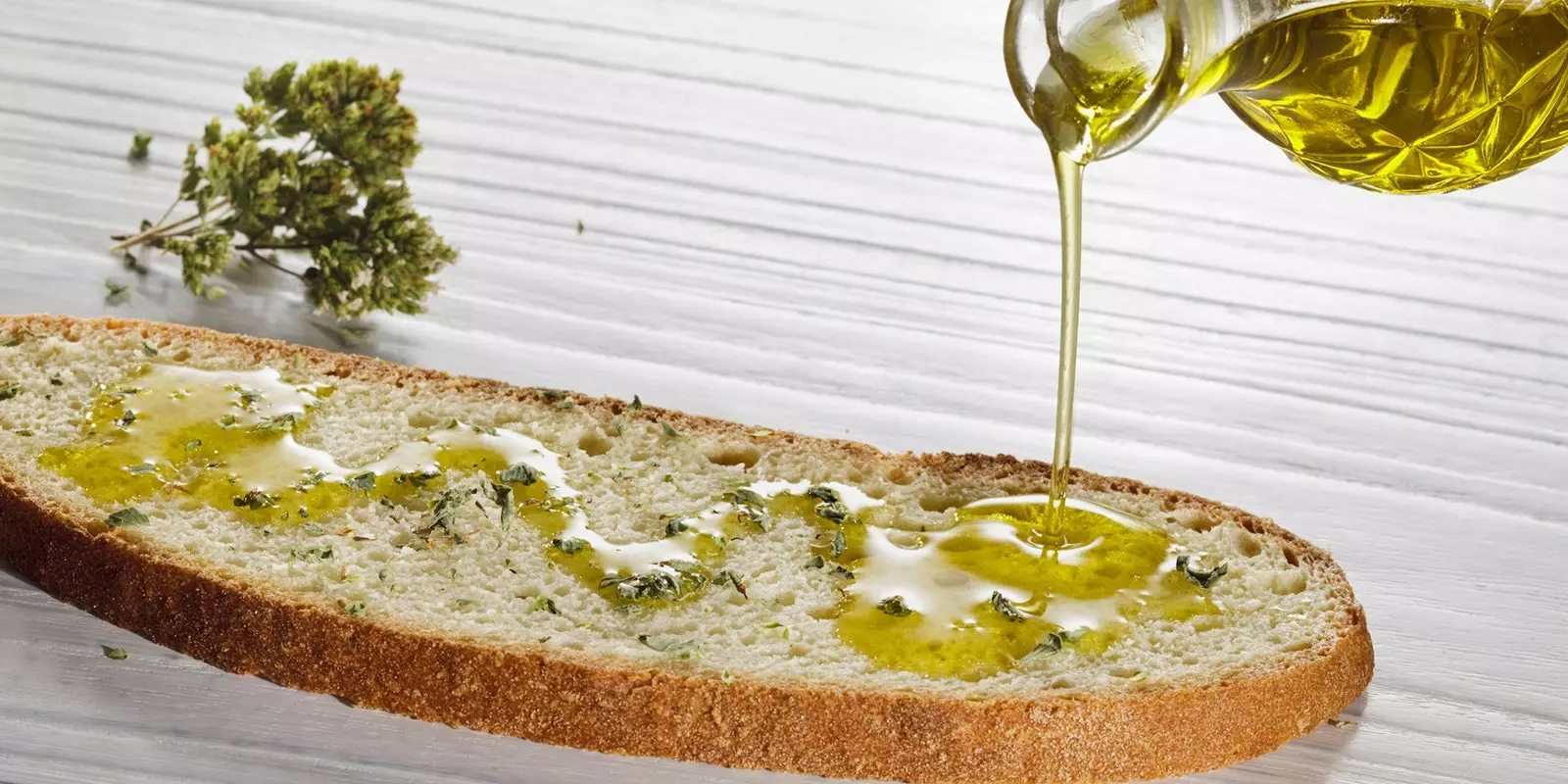
Bread with extra virgin olive oil: nothing can make us happier
It is the pillar of the Mediterranean diet and also goes perfectly with any world gastronomy. To fry, to marinate, to sauté or to dress… It always works. Just throwing it on toast brightens your day and dressing a salad with a good one changes the movie.
But In addition to being tasty, olive oil is a whole health insurance and the best ally anti-aging . And it turns out that in Spain we are the number one of its production, we have it at our fingertips and it is omnipresent in our kitchen. We are in luck.
Nevertheless, there are still some doubts, some fuzzy concepts and certain fillers that we should start correcting when we talk about it.
We will try to solve everything in these simple steps and with the help of Theresa Perez , manager of the ** Spanish Olive Oil Interprofessional Organization , which has been working for a decade to enhance the image of our product in the main world markets, among other ways linked to the ** Olive Oil World Tour program of the European Union , dedicated to introducing 21st century travelers to the culture of olive oil.
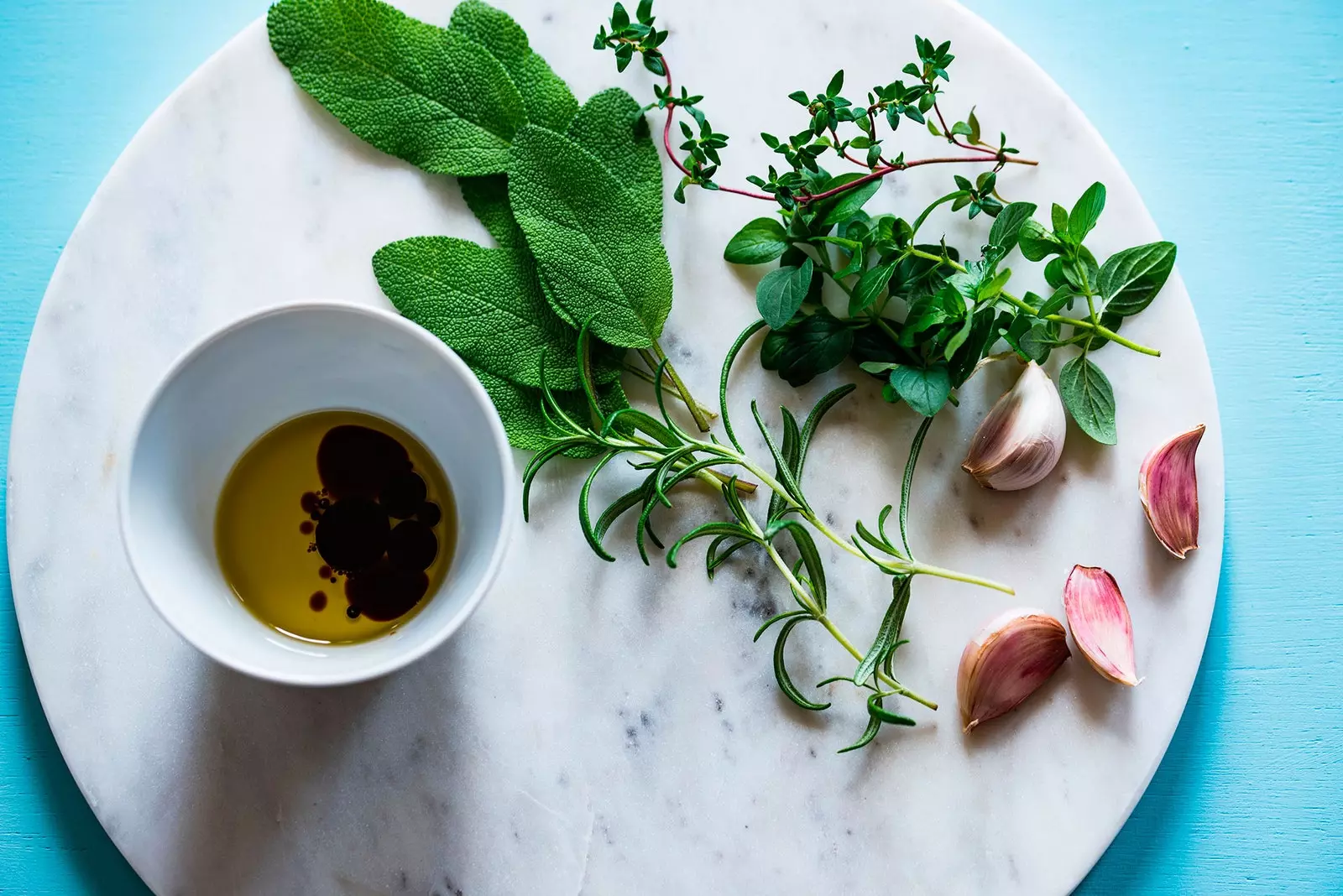
Extra virgin olive oil or the essence of Mediterranean cuisine
1. IS WTFAQ EXTRA VIRGIN OLIVE OIL
Extra virgin olive oil EVOO is the gold medal of oils. It is made exclusively with the juice of olives harvested at the optimum moment of maturity and only with mechanical procedures and has an acidity never greater than 0.8%. Its tasting properties are unique, which is why it is perfect to serve cold and brightens up any dish just by touching it.
The virgin olive oil , on the other hand, would be the silver of the podium: it is also 100% olive juice extracted by mechanical means and can be used basically for the same as extra virgin, but It does not reach the level of excellence of the previous one.
Finally, dry olive oil includes in its composition a blend of refined and virgin olive oils. We use it, above all, for frying.
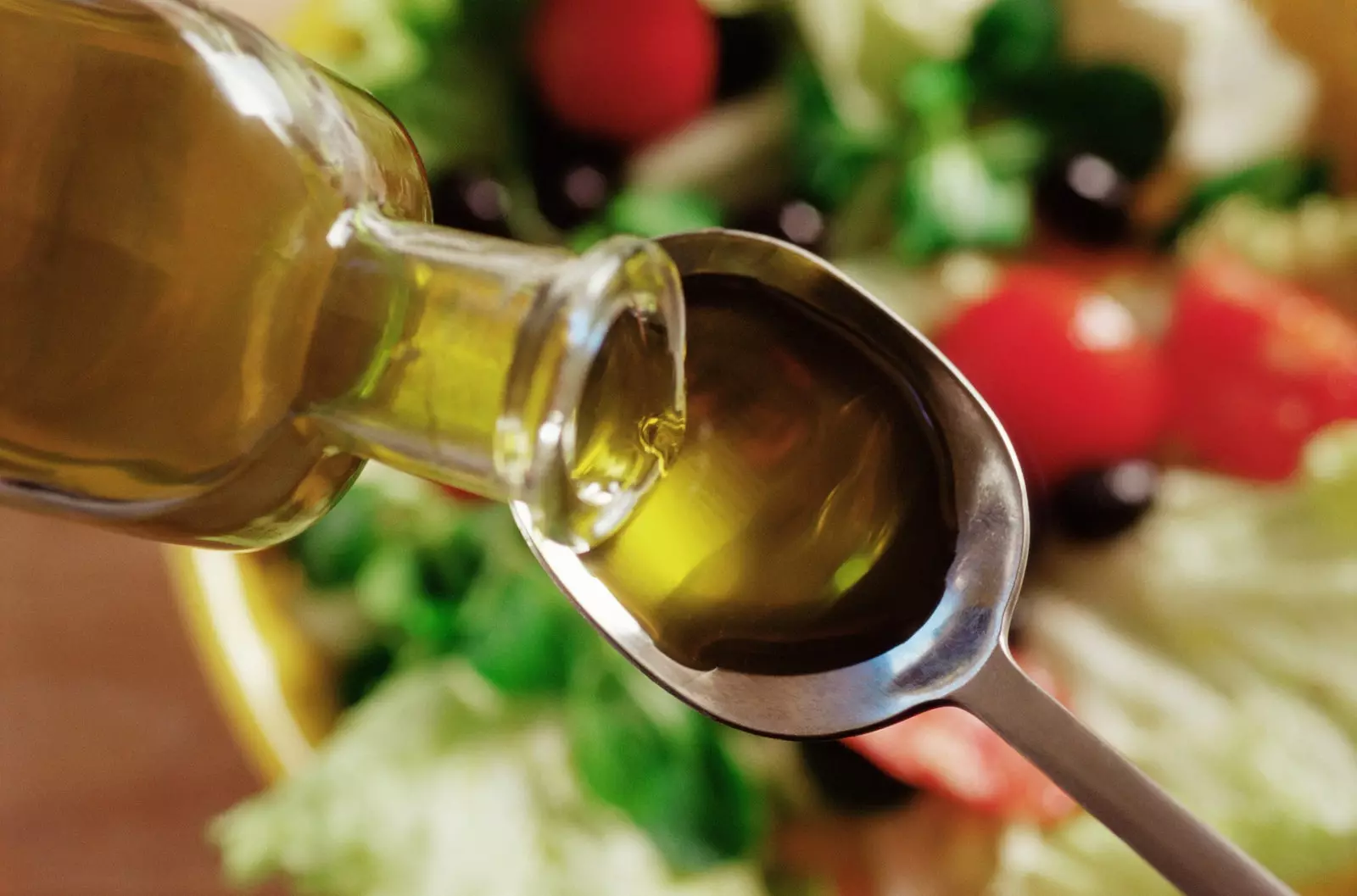
Olive oil is divinely understood with any world gastronomy.
two. HOW DO WE PRODUCE AND EXPORT EXTRA VIRGIN OLIVE OIL?
Our olive grove and its cultivation techniques have undergone a real revolution in the last two decades: at the end of the last century, Spain reached one million tons of olive oil produced in one campaign; Y now we see how the two million are within our reach. In addition, we have the most modern and efficient processing industry in the world, with 1,700 mills , equipped with the highest technology. And not least, that guarantee a minimum environmental impact.
“This sector is an example of a circular economy since it values all the by-products. Right now we are leaders in the generation and use of biomass. But beyond the industry, it has turned the way we sell the product. Spain dominates the world trade of olive oils" comment to Traveler.es Theresa Perez.
"We export an average of 900,000 tons a year, more than 60% of our production to almost 180 countries. Exports that in 2018 exceeded 3,000 million euros in value. Likewise, we have given a huge boost to the marketing of the product, in the way we sell it, the packaging, the brands… The truth is that very few sectors of our economy can boast of such a radical transformation as the one it has undergone in olive oil", she continues.
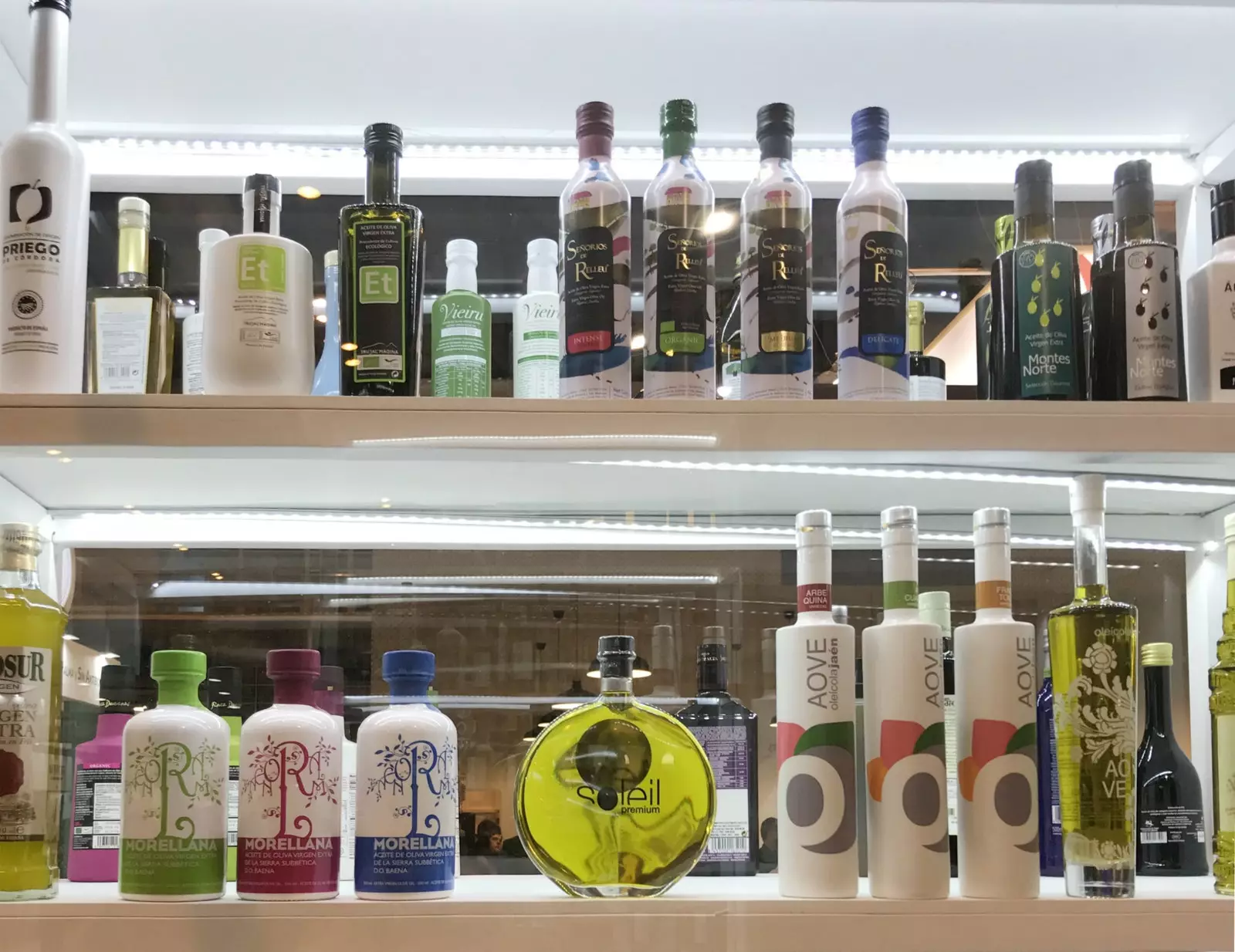
Olive oil packaging has become more sophisticated and increasingly attractive.
3. SO, IS IT CHULERIA OR ARE WE THE MAXIMUM WORLD POWER IN OLIVE OIL?
It is a truth like a temple. Unquestionably, Spain is number one in the world: **the Spanish olive grove is the largest in the world with 2.5 million hectares and 340 million olive trees ** and a production of close to 1.7 million tons of olive oil (data of the Food Information and Control Agency (AICA), corresponding to the month of February, before the end of this year's harvest campaign).
What is said in another way means that of each two bottles sold in the world, one is Spanish (we repeat, of every two bottles sold in the world, one is Spanish). The next producer, beautiful Italy, is a long way off: forecasts suggest that this year they will not even reach 200,000 tons.
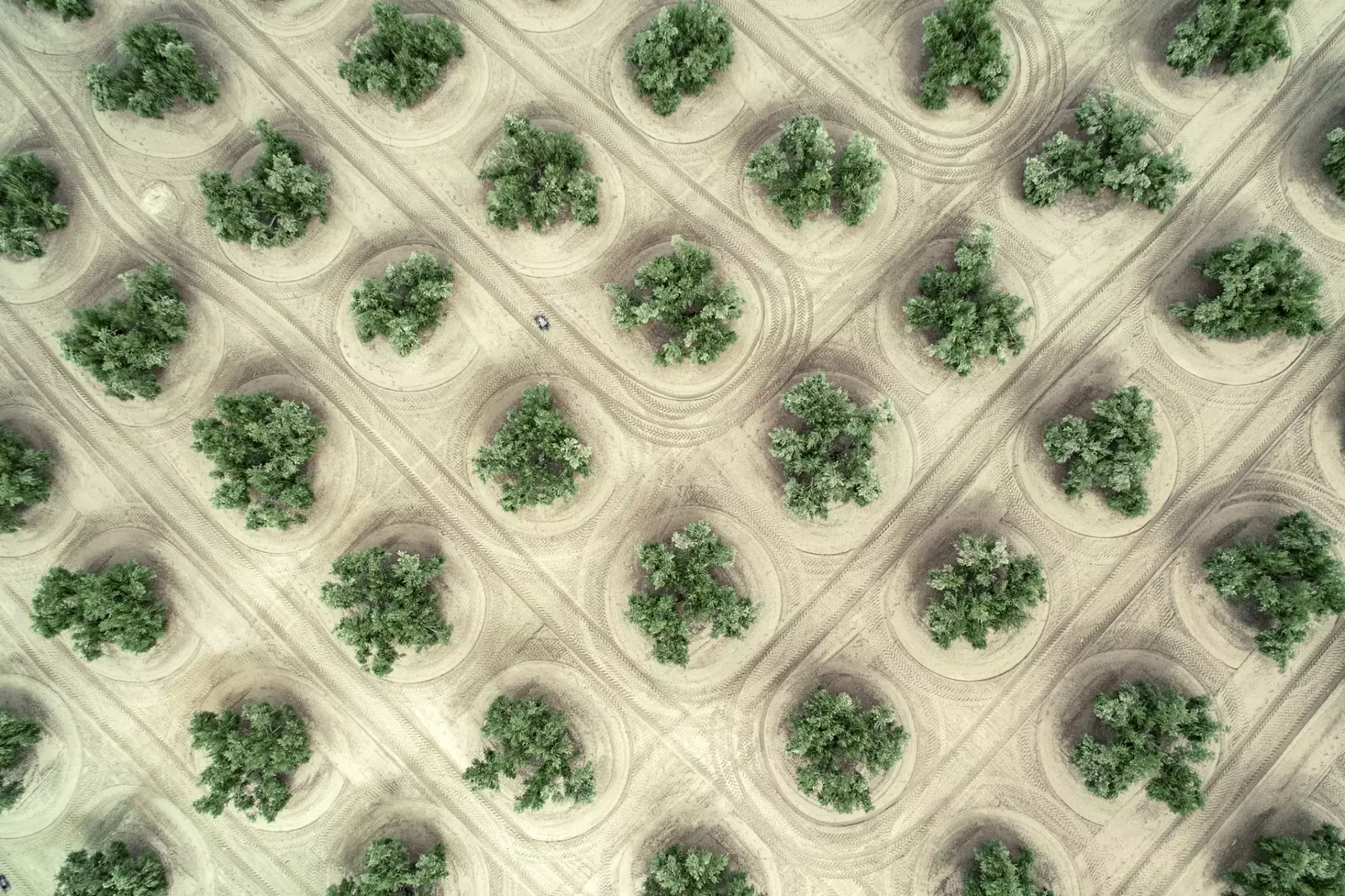
Olive grove of Jaén from a bird's eye view.
Four. HOWEVER, ITALY TAKES FAME WITH ITS 'OLIO'
Yes, but less and less. “In the last five years ** Italy has lost leadership in two of the most important markets in the world: the United States.** On the other hand, China is the market that has grown the fastest in the world, and it was Spanish companies the pioneers in bringing this food to that country, so it is generally . But the truth is that many consumers in the world continue to link this food to the image of Italy. That is the challenge that we have on the table right now, to position Spain as a benchmark also in the minds of consumers”, concludes Pérez.
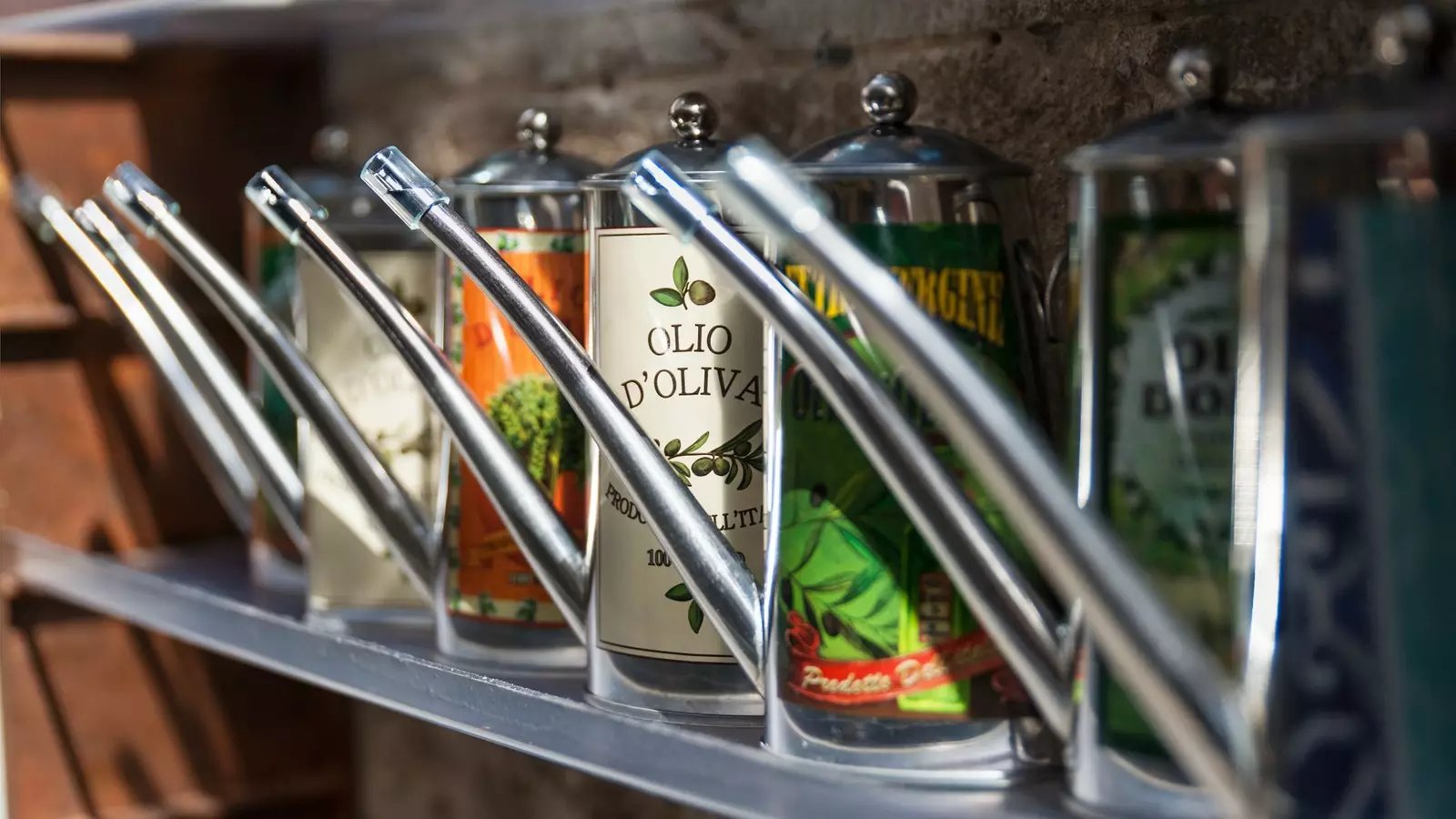
The Italians have known how to do it very, very well.
5. ARE THE ITALIANS 'BAD' FOR SELLING SPANISH BOTTLED OIL AS ITALIAN?
No. The Italians are not really bad and we love them and we have no choice but to to recognize, to begin with, the value of having opened the extra virgin olive oil market, first in the United States (let's remember Genco Olive Oil, the oil import company created by Vito Corleone), and then in the world.
Let's do a little self-criticism first, since Italy is still our first client in the world and absorb our surplus production.
“Italy consumes on average around half a million tons a year. However, its production for more than a decade has not even been able to supply the internal demand of its market (the aforementioned 200,000 tons). To this we must add that they also export olive oil, about 300,000 tons a year. They have no choice but to source from the world market, and only Spain is willing to supply olive oil in that amount and with the highest quality standards”, confirms Pérez.
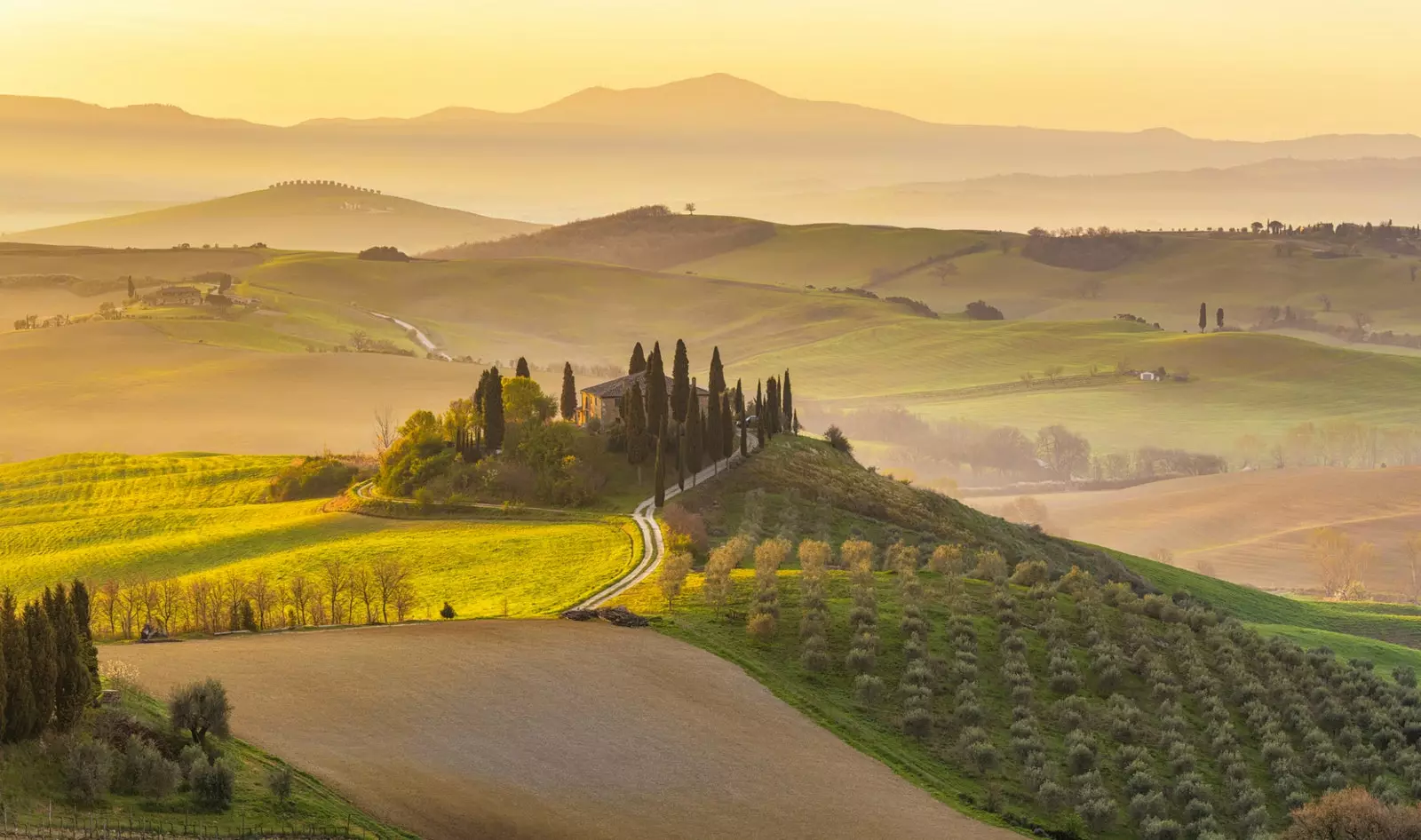
In Italy there are not enough olive trees for so much olive oil.
6. IN ADDITION TO QUANTITY, DO WE HAVE QUALITY TO COMPETE?
Well, we also have it, hey. “Here we are also improving a lot. Spain leads the classification with authority of The World's Best Olive Oils ranking. We have come to put nine of our oils among the top ten, both in traditional and organic production", sentences **the manager of the Interprofessional Organization of Spanish Olive Oil,**
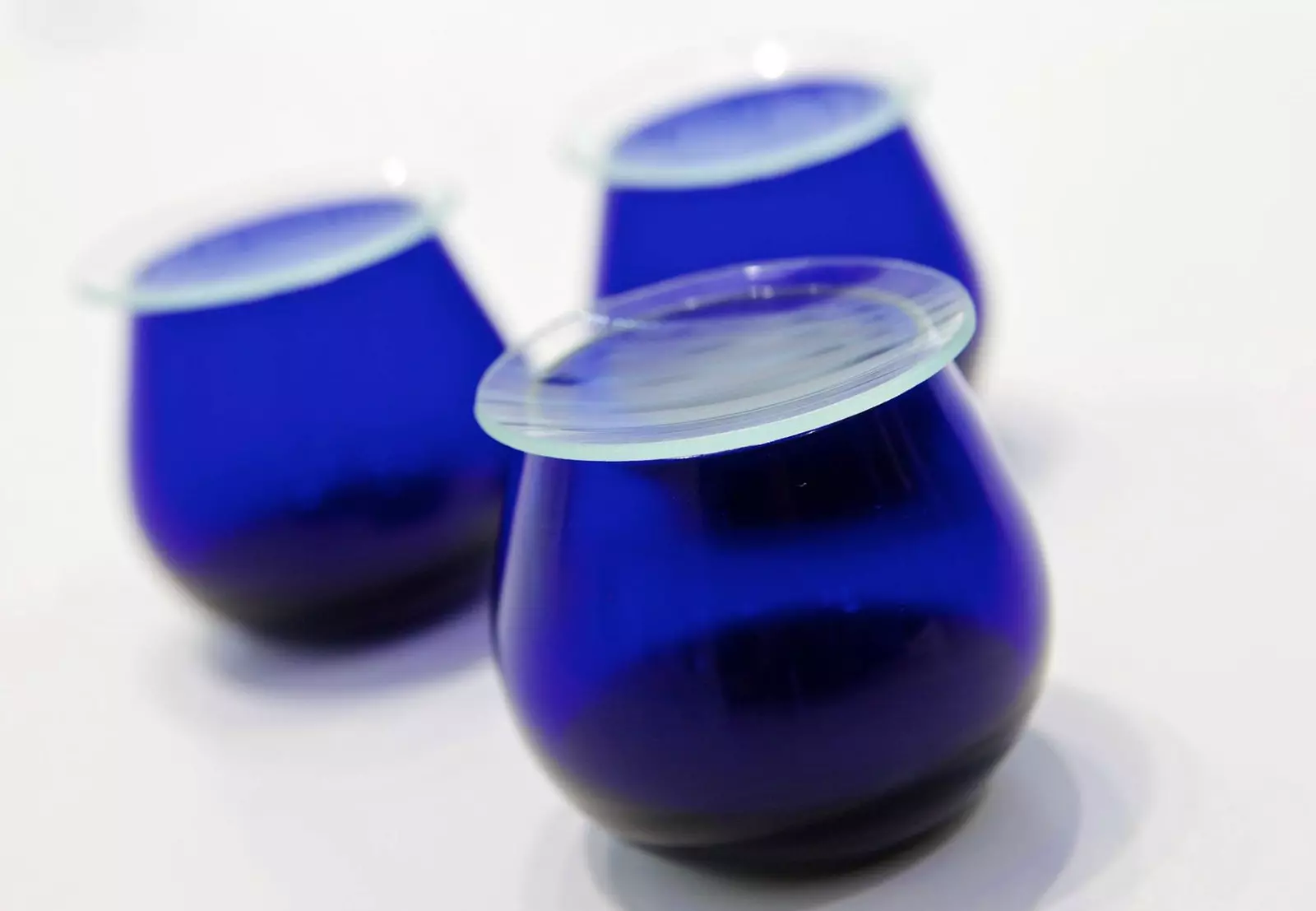
This is the olive oil tasting glass.
7. LET'S CLARIFY: CAN YOU FRY SEVERAL TIMES WITH THE SAME OIL?
It can and should be . It is one of the great virtues that extra virgin olive oil has compared to other vegetable oils (in addition to the fact that it “grows in the pan”).
“The fatty acid composition of olive oils makes them more heat stable than other vegetable fats. But, we must not forget a series of simple tips. The first and fundamental is to control the frying temperature. The ideal is never to exceed 180 degrees. At higher temperatures it begins to lose properties. The other basic recommendation is to eliminate all food remains, straining it before storing it for reuse”, explains Teresa Pérez.
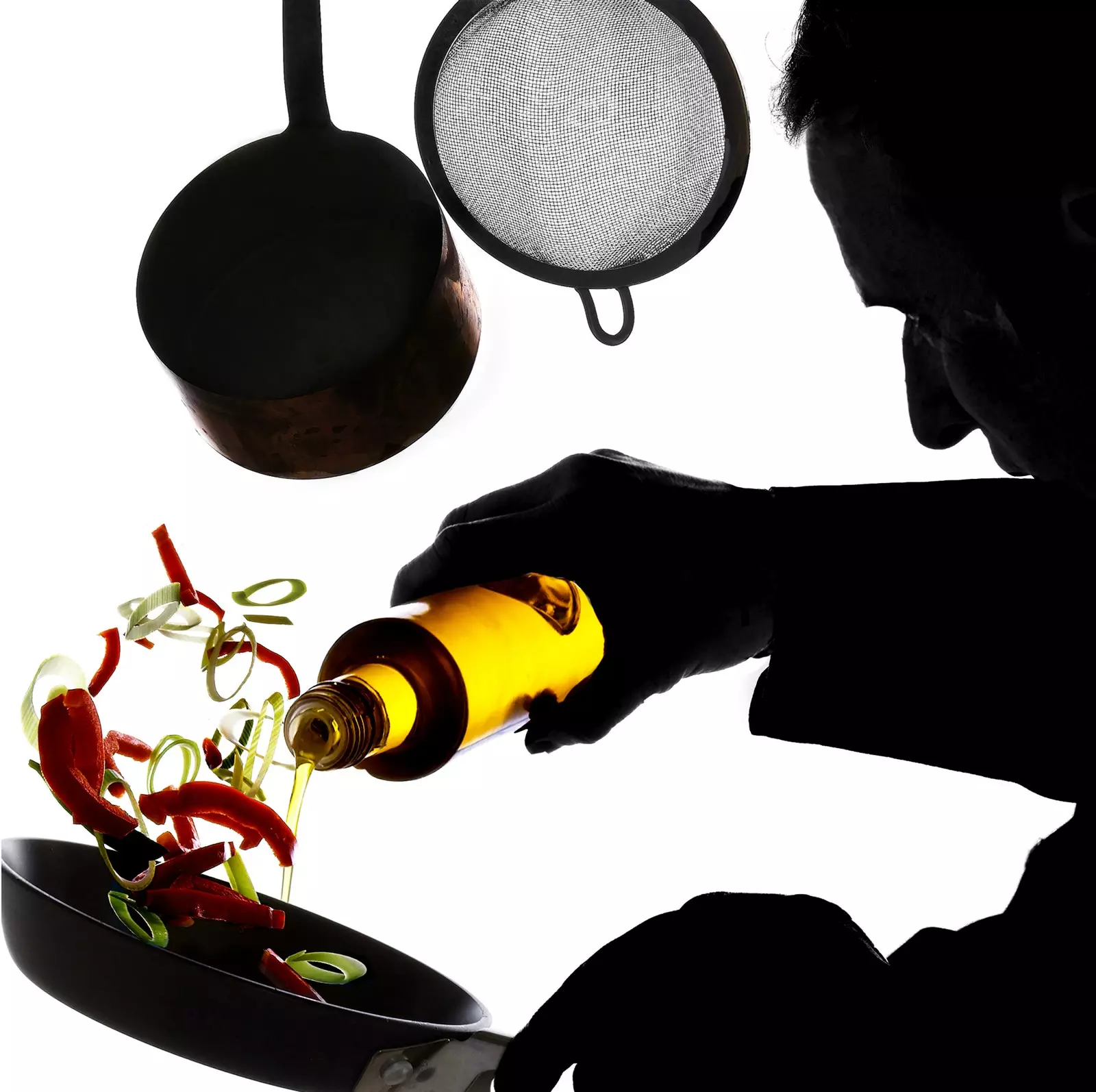
The great chefs only use extra virgin olive oil for frying.
8. WHAT ARE THE MAIN ENEMIES OF EXTRA VIRGIN OLIVE OIL?
What makes olive oils unique, especially virgin and extra virgin, are a series of compounds present in very small proportions, responsible for its aromas and flavors.
“They are especially sensitive to light, heat and oxygen in the air. So if we do not take a series of simple precautions, we will gradually lose those attributes. For that reason, We must store them in places away from light and heat and well covered. If we do it this way, we will be able to enjoy these benefits for a long time”. You know, dark bottle and, preferably, can to keep them.
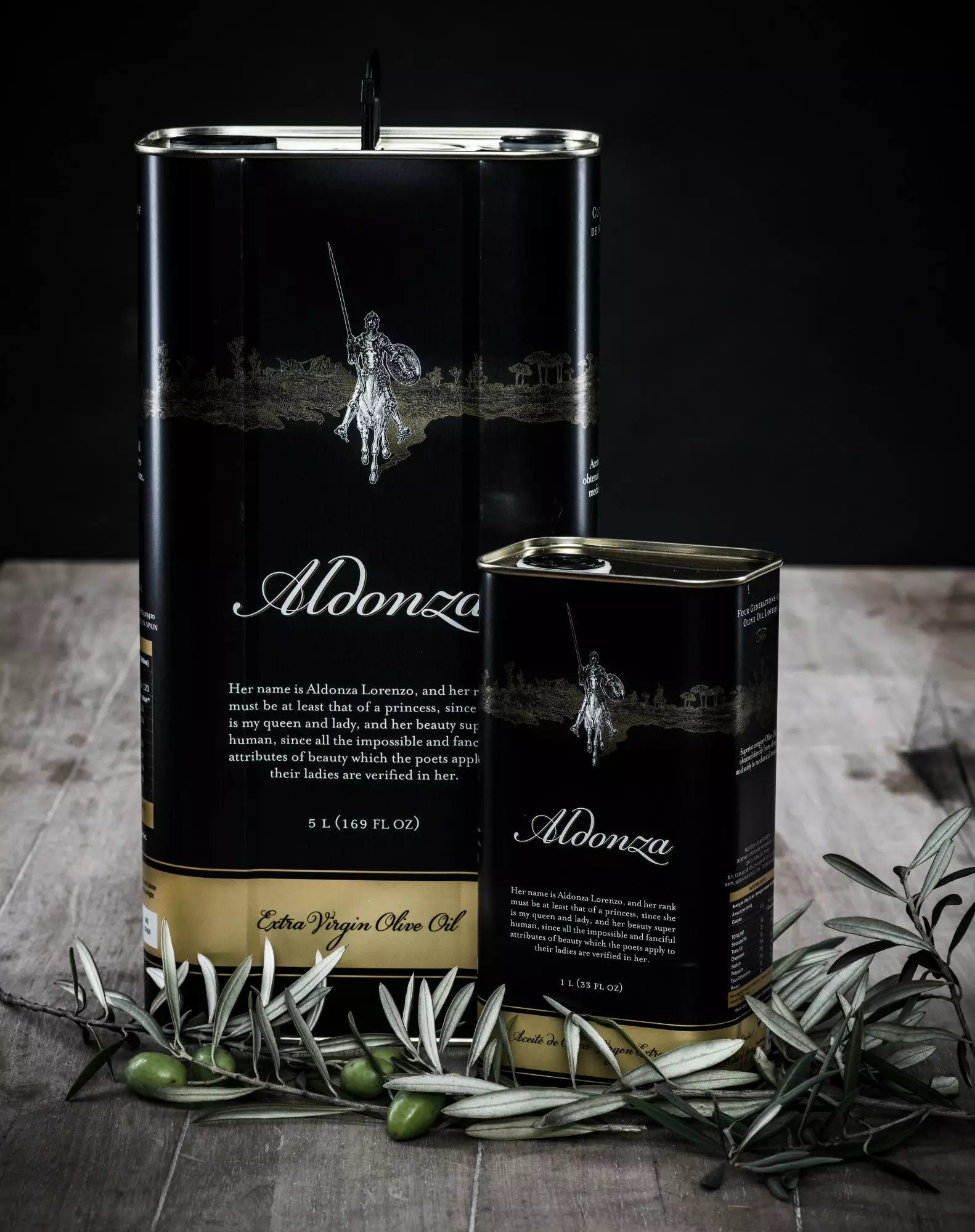
Many brands have repackaged olive oil in cans, like this one from Aldonza.
9. WHY IS TALKING ABOUT 'FIRST PRESSING' LIKE TALKING ABOUT 2.0?
The truth is that today that expression is an archaism. To understand it we have to do a bit of history. And to narrate it, we have Teresa:
“In the past, the only way to extract the oil from the fruit was by pressure. The olive was ground and this oily mass was introduced into large presses that compressed it until the liquid of the fruit separated from the solid part. The first oil that was extracted by exerting that pressure was the best quality. It was normally stored in special tanks and could be marketed as 'first pressing' oil, which was equivalent to an indication of superior quality. But more than 25 years ago, the presses were replaced by systems that are much faster, more efficient and, above all, that guarantee a product of much higher quality, continuous production systems. The ground and homogenized olive goes to a centrifuge which, due to a difference in density, quickly separates the oil from the water of the vegetation, pulp and bone. Since presses are no longer used, the expression 'first pressing' has become obsolete”.
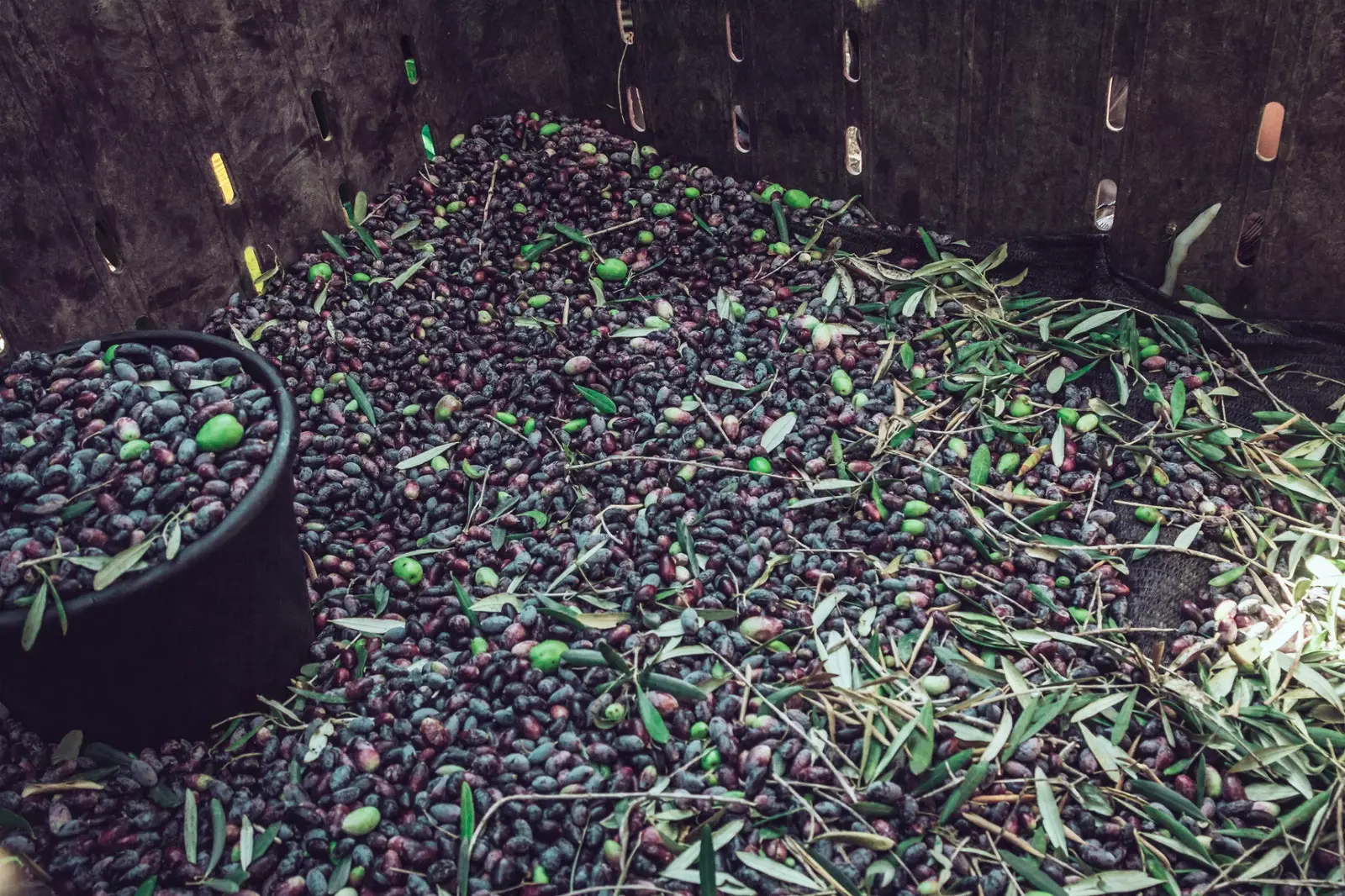
It is obsolete to speak of 'first pressing'.
